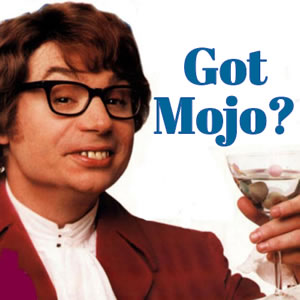As a travel editor, I can admit that sometimes communication between the editor and the writer fails.
These tips might be useful for beginning writers – whether travel or any other genre.
Respect Word Count limits
When your editor says one thousand words, it really means “one thousand words”. Maybe one thousand and two but not more. Before asking you to write on a particular topic your editor plans how many pages she can give to your article (even if it’s a web publication, she still needs to take into consideration the size of your article). If you give us more we have to cut your article and try to not loose any sense. Writing less is also a bad idea. Then your editor has to add a paragraph or two to your work or ask you to do it – and definitely it’s not great to add meaningless paragraphs to the finished work.
Always ask how many words you have to write — then stick to that — and your editor will love you forever.
Stick to the format
Before going to a particular country to write about it be sure that you know the format of the publication and its readership. Ask yourself: who is going to read about this? A backpacker or an old rich couple? Or both? If you personally don’t like something, consider that maybe the reader would like it.
However, defining the right audience can be tricky. For example, your publication writes about luxury traveling and you are sure that people who read it are very rich. However, the average reader of this publication can be a person who just dreams of travelling that way. So, be sure that you target the right group of people. It’s better to talk to your editor about it before your trip – not after. Even if you are sure that you already know the publication don’t be lazy to obtain more specific information. You can ask for a media-kit, if necessary.
Sticking to the format is also very important when you plan to send an author inquiry. Before submitting an article to a publication find a couple of previous issues and have a look. I work for a magazine that writes about Italy and Italian culture. From time to time I receive an inquiry from an aspiring freelancer/contributor/writer: “Have you ever written about Colosseum?”. Of course, we did! So…
…find unique ideas
Your previous success means nothing if you don’t have any good ideas now. Ideas sell. So jot down several ideas for future contributions and a short synopsis for each.
You might ask – where to find these “unique” ideas? Especially if you are a beginner and haven’t travelled and written much? Try to notice small things: a jazz festival in Brighton, a flower celebration in Spain – it can be anything! Talk to people that came from different parts of the world – it always helps. If you dream to write about a particular country or city, narrow your topic as much as you can. For instance: Italy –> Rome –> Colosseum –> Gladiators, Romans. Traditions of gladiatorial fights and how the Romans treated gladiators – this can be a topic. By the way, the famous movie “Gladiator” was filmed not in Rome, but in Tunisia. Do you know why? Let’s go to Tunisia to find out!
Don’t panic if you can’t write in the publication’s format for the first time. Even experienced writers can find it difficult to change their writing style to fit a publication. Take the opportunity to ask your editor about the format.
Don’t be too importunate
In the print world, publishing takes time. So it’s not good to constantly ask your editor about the future of your masterpiece. Editors have to handle many things: editorial calendar, other departments’ work, deadlines, deadlines, deadlines. Sometimes we have to put off articles until the next issue because we were given a last-minute advertisement that needs your space. If you wait for the response for a long time, call your editor or send her or him an e-mail. If your article was “put off” it means that it was put off but not declined!
Be stylish
Even though your writing needs to match the format of the publication, find your own writing style (even it loves to play hide-and-seek with you). Every editor likes authors who can write well. Sometimes people buy a publication or go to a web page not because they want to know about a particular city but because they want to know how a particular person has written about it. If you are a beginner, finding your own writing style seems a challenging task. Where to find it? At first, think about writers you really like. Why do you like them? Are they funny? Or write useful stuff? If you don’t have any writers you adore… Well, find some! Reading good pieces and imitating someone’s style may help you to define your own.
If you still think you need more writing practice, blogging is a perfect way to develop your skills. Also, a good blog will help you to attract editor’s attention to your author inquiry, especially if you don’t have any articles published in print yet.
I would recommend to every beginner writer to write a small “opinion piece” a day. You can write about everything – a country, a film star, a new law. Opinion pieces help to develop writing skills and also broaden your mind.
Don’t give up
Beginner writers don’t believe that almost every editor is constantly looking for new gifted writers. Even a well-known publication needs new blood! New writers have new ideas, and every editor understands it. So don’t be shy to send inquiries!
Following a publication on Facebook might be useful: you can learn more about its format. Also, many publications post vacancies on their corporate Facebook Page. To contact or not to contact your editor through Facebook? Some people don’t mind to have work contacts there, some think it is too much. For the author inquiry it’s still better to contact the editor through corporate e-mail, and then you can ask whether you can add her or him on Facebook.
Like pics of your editor’s cat on Instagram
This is essential. Kidding… Maybe!
~Anastasia





